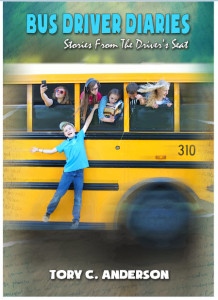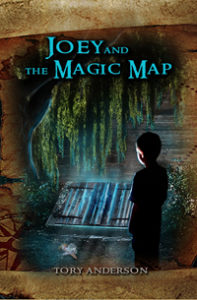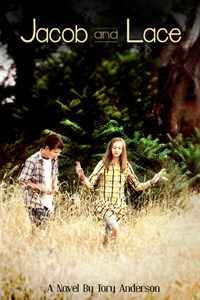Our Blog
17 MarThe Transformative Power of a ‘C’

My youth was filled with dreams of stars and planets and space. It was also filled with space travel, alien civilizations, and universal connections. From the first moment when I looked up at the night sky and discovered the stars a yearning filled my breast with a need to go there or at least to understand what “there” was. My dream to become an astronomer was born.
From a young age I haunted the Burley Public Library looking for books on astronomy. When I read all the related books on the subject aimed at children, I moved on to the adult section. These books were above my level, yet I was introduced to terms such as parsecs, pulsars, light years, and neutron stars. I memorized the names of particular stars in the sky. I could tell you about their size, color, and temperature. I would reverently tell you how far away—oh, so far—these stars were from us. The Big Dipper (Ursa Major to those of us in the know) and Orion became my guardian angels. There were also Cassiopeia, Leo, and Aquila. The Pleiades called to me seductively like sirens. Because of the stars, the night was my friend.
As interested as I was in science, I was not above reading fiction—that is if the fiction was science fiction. I spent summer mornings parked in the aisle of the library devouring this rather new genre of book. I read the greats like Isaac Asimov and Ray Bradbury. I read even more of lesser authors whose names and books have been forgotten. They filled my mind and soul with visions of ships coursing through space to planets of unimaginable beauty and sometimes of unimaginable horror. I was the lone explorer on Mars who happened to be there when the Martians—long absent on a journey to the stars—returned. I was the first spaceman to Venus who had to solve a lethal puzzle before the Venetians would allow themselves to be visited. I was a telepathic boy who made a mental connection with an alien girl on a planet light years away. Little of this was great literature, but it did great things to my soul.
My dream to become an astronomer persisted throughout my teenage years. I studied electronics (and Morse code) and got a general class license as an amateur radio operator. I spoke with other hams all over the world in Morse code. I built model rockets and shot them into the sky. I took a ground school course in high school and actually got to take off a Cessna 172 while a spray plane pilot with nerves of steel gave me verbal instructions. Those around me could find no reason to think that my dream to be a scientist wouldn’t come true.
The first indication of trouble came when I struggled through geometry in 10th grade. I was lucky to get a C. I was never an obsessive straight A student, but I did generally get A’s in my classes. This C was troublesome, but life went on. In 11th grade I signed up for Advanced Algebra. It did not go well. The teacher, who reeked of cigarette smoke, frightened me. I was glad I sat at the back of the room. In spite of being attentive and applying myself to my homework I soon found myself feeling like I was sitting outside the classroom looking in through a window. I was so lost that, although present, I was no longer a part of the class. I felt like an interloper, a cancer cell in the class body. I was so hopelessly lost that I dropped out of the class halfway through the year. I had failed advanced algebra.
The following summer I took two or three self-help books with me to the mountains where I worked building trails. Isolated and surrounded by pine forests and tall mountain peaks, I studied those books devotedly in the evenings and on weekends. When my senior year of high school started I was ready to pass that math class. I started with determination and belief. Nothing was going to stop me. After all, I had read in the books that “if you believe you can, you can!” It turns out that that saying is a lie. At about midterms I was going down in flames. I studied. I sought help from my math whiz friends. I prayed my heart out, but it wasn’t to be. I dropped the class and failed advanced algebra the second time.
The funny thing was, I still held on to my determination to be an astronomer. I would make it there somehow. I guess I still “believed” in spite of everything.
In college I was ready to take on my math challenge again. They wouldn’t let me take Math 1010 (beginning college math) until I passed advanced algebra. They only offered a self-study course for that. I took it and passed it with a B+. I wondered why it had been so hard in high school. I figured it must have been that intimidating teacher.
Having done so well in the self-study course, I signed up for Math 1010 with enthusiasm. I cringe now as I remember this. In college classes there is a grace period after the class begins where you can drop it without any effect on your transcript. After the deadline, you were committed with consequences. There were probably signs enough before the deadline to tell me that I wasn’t doing well and should drop the course, but being obtusely stubborn I kept at it. Not even halfway through the class I was reliving my high school advanced algebra experience. I was so lost I simply quit going to class. I had failed the class.
Did I already tell you that I was obtusely stubborn? The next semester I signed up again. “If you believe you can, you can,” right? I doubled my efforts to understand. I spent hours with math whiz friends, again. I went to the math lab where savvy student tutors blithely showed me that they knew how to solve the problems that I couldn’t, but were unable to transfer their ability to me. Once again, I saw the hopelessness of the situation and quit attending class after the deadline. I had failed, again.
During all this I was doing very well in all my other classes. I felt a particular joy from the things I was learning in them. This told me that I wasn’t stupid. Not being stupid led me to doing the only reasonable thing—I enrolled in Math 1010 a third time. Surely such persistence would be rewarded. I would crash through the walls of this course and move on to trigonometry and calculus as a magnificent case study for any self-help book. Never give up! Never surrender your dreams! This summer term course was taught by a rather arrogant graduate student teacher. He was quite proud of his math nerdiness and his agility with numbers. It wasn’t long before he exclaimed that I was “as sharp as marbles” in front of the rather small class and I dropped out of math for the last time.
To say the realization that I didn’t have the ability to become an astronomer was devastating is an understatement. I left school for two years, broken and confused, while I took care of other obligations. I was back to ground zero when it came to knowing who I was and where I was going.
When I came back to college my idealism was gone. There was no “if you can dream it, you can achieve it” or “nothing is impossible” left in me. I only knew that I had failed in my dream to become an astronomer and that I needed to go another route. But what route? Some of those other classes I had taken were mandatory general education classes like Freshman English and Theater Appreciation. I had felt a very real emotional spark in those classes as I experienced thought provoking short stories and emotionally overwhelming movies and plays. I declared an acting major for one semester but quickly discovered I wasn’t “like” the other acting majors. I finally realized that it wasn’t the acting that attracted me, but the literature the acting was built upon. Suddenly it was as clear to me as the nose on my face that I was born to be an English major.
And so I found myself sitting in the midst of sophomore level English majors who knew long before I did what it was they wanted. Wouldn’t you know it, I felt lost among them. As the professors asked questions about the literature we were studying, the others were responding with things like, “I think the theme is ‘loss of faith’ much like we read in Anna Karenina” or “I like the motif of the color green in The Great Gatsby.” The only response I had to the books we read (thank heavens they didn’t ask) was, “Me liked the book. Me thought it was good.” Had I found my academic family only to learn that I was the runt of the batch?
My lack of self-esteem sunk even deeper when Gloria Cronin, my literary criticism professor, gave me back my first paper with, “No grade. Write again!” printed at the top. This wasn’t surprising since even after three weeks of class I still couldn’t figure out what literary criticism was. I wrote the paper again and got the same message back. The world was looking dark. Perhaps I was actually stupid.
In my 19th Century English Literature class, Professor Stephen Walker, a Harvard Ph.D. graduate, assigned our first paper. You can understand that I entered this project with the hope of a serial killer on Death Row. I don’t remember what I wrote, but I do know I did my best in spite of the migraine headache I was suffering from. Professor Walker announced that he would grade the papers one at a time in his office with us present. An ‘A’ student might look forward to such a meeting with a professor. I approached his office as if he were the boss and I was a slacking employee who knew he was about to be fired.
His office was small and every bit of wall space was crammed, floor to ceiling, with books. He sat in a chair beside his desk so that there was nothing between us and I sat almost knee to knee in front of him. He greeted me in a friendly manner, then took my paper and began grading. I was so depressed I watched him without much emotion even when he would raise his eyebrows or vocalize a thoughtful “Hmmm” as he read. Every so often his red pen flashed and left wounds on the paper.
Finally he finished. He stared at the paper thoughtfully, then raised his eyes and said, “Well, Tory. I think this a ‘C’ paper.”
Some of you may not realize the courage it takes for a professor to make such a judgement. There are students who will cry, scream, or threaten to get their lawyer father to sue if anything less than an ‘A’ is given. For students like that a ‘C’ is akin to condemning them to Hell. Professor Walker and I didn’t know each other. He couldn’t be sure if he was going to have a fight on his hands when he assigned my grade or not.
He studied my face carefully as he waited for a response, looking for signs that he should take defensive measures.
“A ‘C’?” I said.
“Yes,” he responded, watching my eyes closely.
“You really think it deserves a ‘C’?”
He took a deep breath and committed, still not knowing where I was going. “Yes, a ‘C’.”
“I mean, you’re not just giving it a ‘C’ because you feel bad for me and it actually deserves a ‘D’ or an ‘F’?”
I remember the look on his face as he processed what I just said. I had just given an indication that I was actually happy to get that ‘C’. Someone in college being happy to get a ‘C’ was probably inconceivable to him. He wondered if this student was trolling him. Then he saw the sincerity in the student’s eyes and, being a kind man, went into action.
“Yes! It is no less than a ‘C’ paper,” he exclaimed. Being adept in critical thinking, he went on to give me specific reasons of why it was no less than a ‘C’ paper showing me competent things I had done. He also did his duty and showed me what kept it from being higher, but he did this kindly and gave me hope that my skills would improve.
The irony of my happiness to get a ‘C’ was not lost on me, even then. I knew that he knew that he had just met a strange kind of university student. Still, that didn’t lessen the importance of what happened in his office. With that ‘C’ I had had my first critical success. I had gotten better grades in other classes, but this was the first passing grade toward my chosen field of study. This ‘C’ told me that I wasn’t a failure. This grade of mediocrity was actually a message from the powers above saying, “you can do this.” I, Tory Anderson, a university loser up to that point, had met with a Harvard graduate and he had officially told me that I had a legitimate place in that university.
Everything changed after that meeting and that ‘C’. The next time I turned my paper in to Gloria Cronin in that literary criticism class I got back a B+. That’s not an ‘A’ but it’s a far cry from ‘No Grade. Do again!’
I continued on in my education as an English major and had a most wonderful, life changing experience. I was never better than a ‘B’ student but that’s pretty good since I’m sure I enjoyed my classes far more than the ‘A’ students around me. They were always concerned with, “Is that going to be on the test?” while I was always, “Please, tell me more.” I came out of many classes literally feeling like I was floating high on the knowledge and new ideas that had just come to me. The threat of a coming test was unable to bring me down.
After graduating with my BA in English, one of my proudest days, I was accepted into the English Master’s program which began two of the most joyous years of my life. While my straight ‘A’ master’s classmates went on to pursue Ph.Ds., I eventually found myself as Director of Technical Services for a high tech computer firm. The company built class 5 tandem switching platforms along with billing systems that were based on relational databases. Even though my degree was in English, I found myself working closely with hardware and software engineers. I also found myself traveling the world training our customers on how to use the million dollar equipment they had just purchased from us. My liberal arts education focusing on critical reading, thinking, and writing had prepared me surprisingly well to succeed in this. I’ve also run my own computer repair business, founded a literary magazine, and published four novels.
One important truth I’ve learned is that academic grades are for children. They matter in school then they matter no longer. Ironically, that ‘C’ Dr. Walker gave me mattered far more than any ‘A’ I got in any other class. Academically, it indicated a mediocre paper, but its real meaning was deeper and more profound. It wasn’t a grade; it was a message that said, “You are not a failure.” That message transformed me. I saw clearly that academic grades have no effect on my value as a human being. I saw clearly that grades have no connection to a person’s intelligence. I was free to find the pure joy of learning. After graduation it freed me from other man-made markers of success. The joyous things of life—learning, loving, caring—were always right at my fingertips.
I never did become an astronomer, but since that ‘C’ I have lived a lot of life. That means experiencing both joy and pain. The joy and pain have been exquisite, but during my high times when I was traveling the world, receiving awards, watching my children be born; or, during my low times when I struggled through darkness that brought me to my knees, I have never been a failure.
These books by Tory Anderson are now available on Amazon in Kindle and paperback format:
About Tory C Anderson
Tory C Anderson is the father and Dad of eight children. He has been employed in telecommunication and computer technology for 25 years. Like most men, Tory has many plans for his life, but he has found that his family has been taking up most of the space. He feels no regrets. Tory's latest Young Adult novel, Joey and the Magic Map is out. You can read more about it here: http://www.ToryCAnderson.com
- Web |
- More Posts(92)




